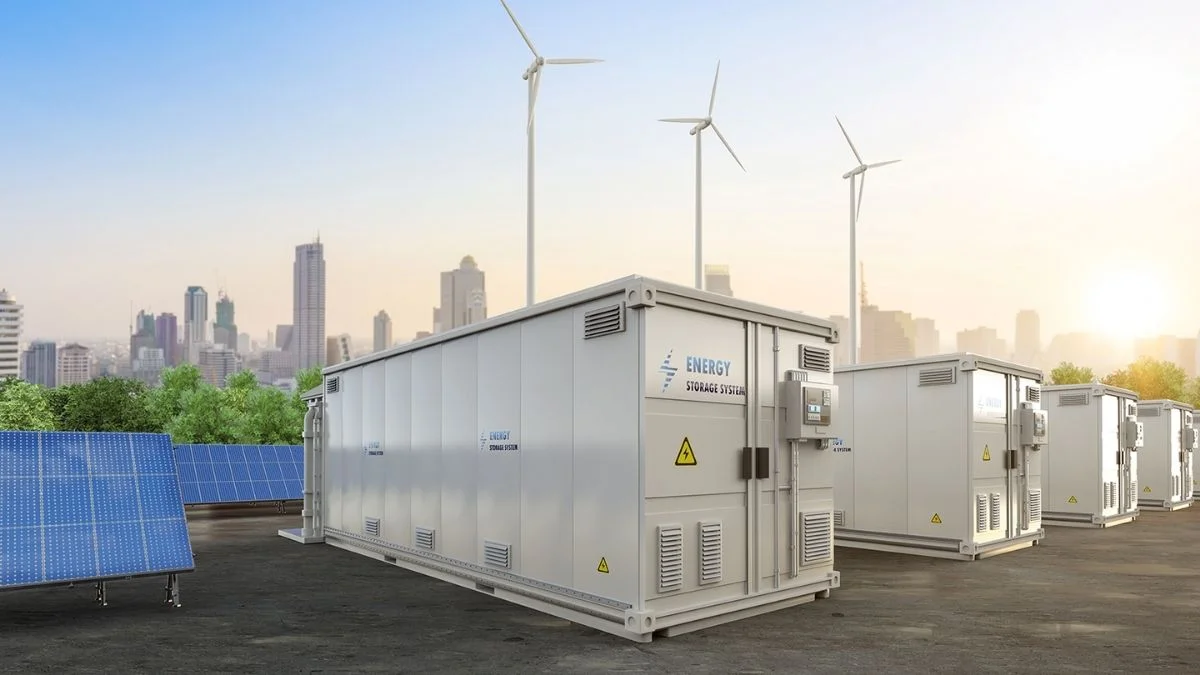GENERAL
Battery Energy Storage System (BESS): Revolutionizing Energy Management

The battery energy storage system (BESS) has taken center stage in this ever-developing power system environment. BESS is vital in energy dependence, distribution, and flexibility as the world shifts to renewable energy sources to meet the growing global demand around No matter whether you are a resident, an entrepreneur, or an electricity junkie, a grasp of how BESS works and what it can do, is imperative.
Table of Contents
What is a Battery Energy Storage System (BESS)?
A battery energy storage system, commonly called BESS, is a technology that charges or stores energy in rechargeable batteries for future use. Compared to more conventional energy storage types, BESS provides options, more benefits, and the ability to expand. Its advantage is that it makes it possible to accumulate energy when there is an excess of production and to consume it when necessary to maintain a calm power supply.
Key Components of a BESS:
To understand the functionality of BESS, it’s essential to recognize its core components:
- Batteries: The system’s core component is typically lithium-ion power because of its high energy density and longer cycle life.
- Battery Management System (BMS): Protects against safe use, control, and performance and against overcharging and overheating.
- Power Conversion System (PCS): Translates stored DC energy to AC for use and back or vice versa.
- Energy Management System (EMS): Manages the storage and discharge of energy depending on the demand from its underlying consumers or suppliers.
Applications of Battery energy storage systems:
The versatility of BESS makes them valuable across various sectors:
1. Renewable Energy Integration:
Specifically, BESS connects renewable energy production by integrating renewable energy sources with the utilization of electricity produced and consumed in the grid. It charges itself with solar or wind energy during its maximum generation and provides power during times and hours of low or no generation.
2. Grid Stabilization:
In this sense, BESS prevents power surges while enabling better demand and supply control for utility providers to help avoid blackouts and boost the electric grid’s reliability.
3. Backup Power Supply:
BESS ensures backup power for continued operations during power cuts in residential and commercial applications.
4. Electric Vehicles (EVs):
BESS enables the management of chargers for electric vehicles and the optimization of energy loads to help alleviate the load on the network.
Advantages of Battery Energy Storage Systems:
Energy Independence: A BESS helps balance the influx of energy by allowing the storage of excess energy for usage at another time, hence decreasing the use of other outside grids.
- Cost Savings: BESS reduces the cost of electricity since energy is stored during periods of low demand and used at other busy times.
- Environmental Impact: Significant BENEFITS OF BESS include a low utilization of fossil energy and intra-regional levels of greenhouse gas emissions.
- Scalability: In BESS design, expansion to fit specific energy storage needs can be done conveniently, whether for tiny residences or massive industrial plants.
Challenges and Future of BESS:
Despite overwhelming benefits, there are drawbacks, such as high initial investment costs, battery degradation, and, last but not least, recycling issues. Nonetheless, constant innovation in battery technology and falling costs will create the right circumstances for electric cars sooner or later.Finally, the future of battery energy storage systems (BESS) is also bright because leaders in the business are coming up with characteristics such as solid-state batteries and better ways of recycling batteries.
Conclusion:
I discovered that the Battery Energy Storage System (BESS) is a game changer, turning the traditional grid-tied generation and energy distribution on its head. Their ability to deliver affordable, optimal, and sustainable energy solutions makes it essential to transforming the energy sector. In the further development of technology, BESS will become increasingly important for building a sustainable future.
FAQs:
Q1. What do people mean by battery energy storage system (BESS), and what is its central role?
A: A BESS is to hold some energy for a later time so that there will be a positive outcome of having dispatchable power while integrating renewable energy.
Q2. What comprises a BESS?
A: The main subsystems consist of a battery, battery management, power conv subsystems and, energy management subsystems, and ems.
Q3. In what ways do subsystems renewable energy projects?
A: BESS can accumulate renewable energy when there is an excess production of energy and then provide the needed energy when the energy output by renewable sources such as wind is low.
Q4. What are some of the issues involved in BESS?
A: Some of the significant issues mentioned are capital costs, reduced battery performance over time, and the specific focus required for recycling.
Q5. Can BESS be used in residential areas?
A: Indeed, BESS is popular in homes to store the energy harnessed from solar panels, cut electricity costs, and even power homes during a blackout.
Should you wish to read more, visit our blog page. We’ve got more topics!
-

 GENERAL6 months ago
GENERAL6 months agoChristofle – For Those Who Dream of Family Heirloom Silver
-

 SPORTS8 months ago
SPORTS8 months agoDiscover the World of Football with Streameast: Watch Your Favorite Leagues and Tournaments
-

 GENERAL4 months ago
GENERAL4 months agoUncovering the World of кинокрадко: The Dark Side of Film Piracy
-

 GENERAL2 months ago
GENERAL2 months agoATFBooru: Anime, Gaming, and Subculture Imageboard























